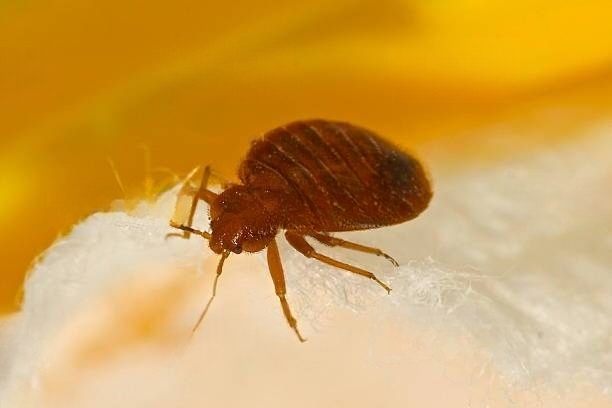Have you heard the phrase, “Don’t let the bed bugs bite” in your childhood? But let’s face it, keeping bed bugs away can be tricky and back-breaking. Did you also think that this task is easier in winter? Well, we are here to tell you if it’s true or not!
The temperature in winter can drop to bone-chilling levels, so you might think that like all other pests, bed bugs will also go away in the cold weather. We suggest you read this article to know whether this assumption is true.
In this article, we’re going to discuss the ideal temperature for the survival of bed bugs, what happens to them in heat or cold, whether can they survive the cold weather, is freezing a viable option to kill them or not, and lastly, some tips and tricks to get rid of bed bugs.
What is the best temperature for the survival of bed bugs?
Have you ever wondered why these little vampires love to sleep with you in bed? It is because of the presence of favorable temperatures, and of course, food.
The optimum temperature for the survival of bed bugs is 70-800F. This is the temperature at which they grow and reproduce at their highest efficiency.
This is also the temperature inside most houses and on your bed! So bed bugs have no problem crawling up at night, moving around the house, or feeding on you.
So, does it mean that a temperature variation can get rid of bed bugs? Let us find out.
Do bed bugs like heat or cold?
Luckily, the answer is NO!
Bed bugs are temperature-sensitive insects, and they might not like very high or very low temperatures. So, a temperature change can reduce their efficiency which means that it can reduce the speed of their movement or rate of reproduction.
Can Bed bugs survive in cold weather?
These creatures cannot be naturally killed by heat or called. But, they can be killed by extreme temperatures which cannot be achieved naturally.
So, if you’re thinking that bed bugs will stay away from your house in the winter. Then, unfortunately, that is not the case. The good news is, that in colder temperatures, there are very few chances of a new infestation taking place.
Since we’ve busted this myth, let’s move forward and take a look at some scientific facts to discover how it is possible.
Bed bugs are temperature sensitive but at the same time, they have a high tolerance against the cold. These insects can survive at temperatures as low as 460F.
Bed bugs pull this off by lowering the freezing point of their body fluids so that they do not freeze in the cold and survive a few days in the cold weather.
You’ll be surprised to know that, according to research published in The Journal of Economic Entomology, some bed bugs when exposed for some duration to a temperature of -130F, survived! However, exposure to freezing temperatures, below 00F for a few days can kill the bed bugs.
Does freezing kill bed bugs?
YES! Freezing can kill bed bugs. Freezing causes ice to form inside these insects causing injury or death.
If they face a temperature of less than 00F, their inner body fluids freeze and they die. However, female bed bugs are even more rigid! The temperature at which female bed bugs can die of cold can go down to -40F that is, -200C.
According to a study, to achieve 100% elimination of bed bugs, they should be exposed to -160C or 3.20F for a minimum of 80 hours. The lower the temperature, the shorter the time it takes to kill a bed bug.

How to use freezing to kill bed bugs?
Firstly, you should identify the belongings infested with bed bugs. The belongings which are likely to be infested include pillowcases, books, wooden materials, small furniture items, etc.
You can place these items in your home freezer for 4-5 days and check the results. Make sure that the temperature of your freezer is less than 40F. You can ensure this by using an infrared thermometer on the items that you have placed inside.
Remember, some items may get damaged during freezing. For example, electronics with an LCD screen, items of historical value, items containing high moisture, or any liquid inside them. DO NOT freeze these items.
It is also recommended to wrap your items in a plastic bag first so that frozen bed bugs are not found later in your freezer. To use this method, you should freeze them at an even lower temperature, or for a longer duration.
After 4-5 days, you can take your belongings out and place other infested belonging if needed.
Check that the belongings are free from bed bugs, and if not, place them in the freezer for another 2-3 days.
Is freezing the best method to eliminate bed bugs?
We’ll have to say NO. Using freezing to get rid of bed bugs has its disadvantages. Let’s take a look!
Some bed bugs may have higher resistance to cold, and they may not even get killed if the appropriate temperatures are not met! They’ll simply go into hibernation and become active once they have appropriate conditions around them.
Freezing is not an all-around solution to eliminate bed bugs. If your house is already infested, the bugs are most likely to be hiding in walls, your mattress, furniture, kitchen cabinets, cracks, and crevices. In short, the items which cannot fit inside your freezer.
So, freezing can only get rid of your small belongings, but the major problem will remain as it is.
Final Words
Since we’ve learned all there is you need to know about bed bugs and their relation with cold weather. You now know that you should not wait for winter to arrive to get rid of them and take the action as soon as possible!
We hope this article has helped you in your journey to eliminate bed bugs, and we wish you all the best!
